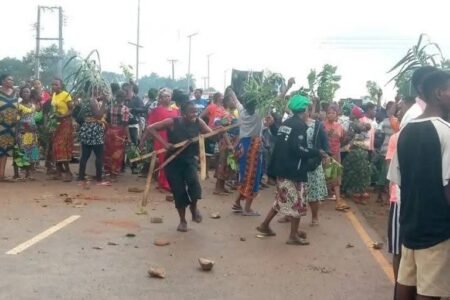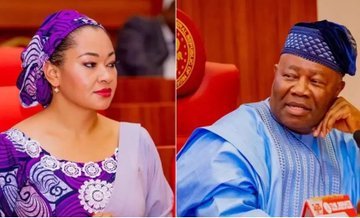The Senate has postponed the passage of President Bola Tinubu’s tax reform proposals till Wednesday to allow for adequate scrutiny and debate.
The president introduced four laws six months ago to change the country’s fiscal policies and increase revenue generation: the Nigerian Tax Bill, the Tax Administration Bill, the Revenue Tax Board Bill, and the Nigerian Revenue Service Establishment Bill.
The delay in passing the laws caused worries, especially after the House of Representatives adopted them two weeks ago, placing pressure on the Red Chamber.
In related development, the Senate leadership resolved to organise a two-day national security summit to find a solution to the escalating wave of killings and other types of instability in the country.
The decision was made following a resolution submitted by Jimoh Ibrahim, senator for Ondo South, at the reopening of plenary on Tuesday.
While on a working visit to France, bandits killed innocent Nigerians in Plateau, Benue, and Zamfara states, prompting calls for President Bola Tinubu to cut short his vacation and return home to lead the fight against insecurity from the front lines.
Leading the argument, Ibrahim stated that the “high level” of global insecurity is caused by events in Russia and Ukraine, which are exacerbated by tensions between the global north and the global south.
According to him, the challenges have exacerbated food insecurity and hampered efforts to achieve the SDGs.
The former Ondo governorship candidate emphasised that America’s ongoing trade tariff war and the growing emphasis on the balance of power in global affairs are paving the way for a new world order.
“This new order reflects in immigration policies, visa cancellations by new regimes, and countries raising funds by selling citizenship — all of which fuel economic conflict and undermine globalisation pursued over the last sixty years,” he said.
Continuing, Ibrahim said Nigeria must clarify its strategic engagement in international affairs, noting that the Senate has a role in advising the executive to maximise national interest.
“The next world war may not even require the fanfare of militarism. The incredible growing economic war is gaining ground with destructive innovation in security globally.
“There is a need for alternative language in military engagement as well as enhanced funding to advance the professional practices and respected tradition of the future military,” he stated.
He called for an “empirical fact-finding national security summit” to help develop long-term solutions.
Mohammed Dandutse, senator for Katsina South, seconded the motion, stating that the lack of intelligence sharing among security agencies constituted a significant setback.
He said, “Nigeria is blessed; we have no other country except Nigeria. We have to face these criminals squarely. No country succeeds except with peace and security.
“The security agencies are given funding. So there is a need for the judicious spending of these resources.”
The senator representing Abia South, Enyinnaya Abaribe, and the senator representing Kebbi Central, Adamu Aliero, however, disagreed with the proposal.
Both MPs contended that a security meeting might not be the solution.
Titus Zam, senator for Benue North-West, and Abba Moro, senate minority leader, disagreed and supported the motion.
Finally, Senate President Godswill Akpabio put the proposal to a voice vote, with the majority of senators supporting the summit.
Akpabio, however, advocated that the conference should extend for two days instead of the three days proposed by Ibrahim.
The Senate then voted to form an ad hoc committee to plan the two-day national security summit in Abuja.
The event will bring together delegates from all levels of government as well as traditional institutions.
The Senate also encouraged the federal government to review and restructure the country’s security policy in light of the summit’s findings.











